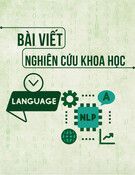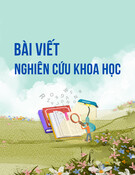
1
UNIVERSITY OF DALAT
FACULTY OF FOREIGN LANGUAGES
READING 1
Core Course Material
Áp dụng cho sinh viên từ K45
Selected and compiled by Truong Thi My Van
Huynh Thi Minh Phuong
FOR UDL STUDENTS ONLY, NOT FOR SALE
Lam Dong, 2022

2
TABLE OF CONTENTS
Unit 1: Antonio’s first day of school………………………………….
Unit 2: Practice …………………………………………………...
Unit 3: My lessons in the classroom ………………………………...
Unit 4: Practice …………………………………………………...
Unit 5: Japan’s young women shun the marriage trap ……………
Unit 6: Practice …………………………………………………..
Unit 7: Culture shock and the problem of adjustment in new
cultural environments …………………………………………….
Unit 8: Practice ………………………………………………………
Unit 9: Using the mind against disease ………………………………….
Unit 10: Practice …………………………………………………
Unit 11: Whose finger is on the button in your house? ………….
Unit 12: Practice …………………………………………………
Unit 13: Thank you, ma’m ……………………………………….
3
10
16
20
26
32
38
43
49
61
67
70
77

3
UNIT 1
ANTONIO’S FIRST DAY OF SCHOOL
By Rudolfo Anaya
The Writer
RUDOLFO ANAYA (1937- )
Rudolfo Anaya is a native of New Mexico. He has two graduate degrees
from the University of New Mexico and has been working in the schools of
New Mexico for many years. In 1971, he won a special literary award, which is
given only to Mexican-American authors. This prize was given to him for
his novel Bless Me, Ultima, from which the reading below is taken.
Anaya writes, he says, to reflect on the people that he met, heard, and
saw while growing up in New Mexico. He also wants his readers to
understand the special beauty of the environment of his native state. Much of
his writing is autobiographical. In the reading below, he talks about his first
day at the English-speaking public school.
The Reading
"Antonio's First Day of School" is a story told by a young boy from
a Hispanic — that is, Spanish-speaking and Spanish cultural —
background. This boy, Antonio Marez, is a first-grader, perhaps six or seven
years old, and like most children, he misses his mother that first day of
school.
Antonio's feelings of difference — in language, in food, in appearance
— and strangeness are the problems in this story. How Antonio overcomes
these feelings is the moral of the story.
Antonio’s First Day Of School
On the first day of school I awoke with a sick feeling in my stomach. It did
not hurt; it just made me feel weak. The sun did not sing as it came over the hill.
Today I would take the goat path and trek into town for years and years of
schooling. For the first time I would be away from the protection of my mother.
I was excited and sad about it.
Somehow I got to the school grounds, but I was lost. The school was
larger than I had expected. Its huge, yawning doors were menacing. I looked
for my sisters, but every face I saw was strange. I looked again at the doors of the
sacred halls, but I was too afraid to enter. My mother had said to go to Miss
Maestas, but I did not know where to begin to find her. I had come to the
town, and I had come to school, and I was very lost and afraid in the nervous,
excited swarm of kids.
It was then that I felt a hand on my shoulder. I turned and looked into the
eyes of a strange red-haired boy. He spoke English, a foreign tongue.
"First grade," was all I could answer. He smiled and took my hand, and
with him I entered school. The building was cavernous and dark. It had

4
strange, unfamiliar smells and sounds that seemed to gurgle from its belly.
There was a big hall and many rooms, and many mothers with children passed
in and out of the rooms.
I wished for my mother, but I put away the thought because I knew I
was expected to become a man. A radiator snapped with steam and I jumped.
The red-haired boy laughed and led me into one of the rooms. This room was
brighter than the hall. So it was like this that I entered school.
Miss Maestas was a kind woman. She thanked the boy whose name was
Red for bringing me in and then asked my name. I told her I did not speak
English.
"Como te llamas!" she asked.
"Antonio Marez," I replied. I told her my mother said I should see her and
that my mother sent her regards.
She smiled. "Anthony Marez," she wrote in a book. I drew closer to look at
the letters formed by her pen. "Do you want to learn to write?" she asked.
"Yes," I answered.
"Good," she smiled.
I was fascinated by the black letters that formed on the paper and made
my name. Miss Maestas gave me a crayon and some paper and I sat in the
corner copying my name over and over. She was very busy the rest of the day
with the other children that came to the room. Many cried when their mothers
left. I sat in my corner alone and wrote. By noon I could write my name, and
when Miss Maestas discovered that, she was very pleased.
She took me to the front of the room and spoke to the other boys and girls.
She pointed at me but I did not understand her. Then the other boys and girls
laughed and pointed at me. I did not feel so good. Thereafter, I kept away
from the groups as much as I could and worked alone. I worked hard. I listened
to the strange sounds. I learned new names, new words.
At noon we opened our lunches to eat. Miss Maestas left the room and a
high school girl came and sat at the desk while we ate. My mother had packed a
small jar of hot beans and some good, green chilies wrapped in tortillas. When
the other children saw my lunch, they laughed and pointed again. Even the
high school girl laughed. They showed me their sandwiches, which were made
of bread. Again I did not feel well.
I gathered my lunch and slipped out of the room. The strangeness of the
school and the other children made me very sad. I did not understand them. I
sneaked around the back of the school building, and standing against the wall I
tried to eat. But I couldn't. A huge lump seemed to form in my throat and tears
came to my eyes. I yearned for my mother and at the same time I understood
that she had sent me to this place where I was an outcast. I had tried hard to
learn and they had laughed at me. I had opened my lunch to eat and again they
had laughed and pointed at me.
The pain and sadness seemed to spread to my soul and I felt for the first
time what the grown-ups call, la tristeza de la vida. I wanted to run away,
to hide, to run and never come back, never see anyone again. But I knew that

5
if I did I would shame my family name; that my mother's dream would crumble. I
knew I had to grow up and be a man, but oh it was so very hard.
But no, I was not alone. Down the wall near the corner I saw two other
boys who had sneaked out of the room. They were big boys. I knew they were
from the farms of Delia. We banded together and in our union found strength. We
found a few others who were like us, different in language and customs, and
part of our loneliness was gone. When the winter set in we moved into the
auditorium and there, although many a meal was eaten in complete silence, we
felt we belonged. We struggled against the feeling of loneliness that gnawed at our
souls and we overcame it; that feeling I never shared again with anyone.
Words & Phrases to know:
trek — walk
schooling — education
school grounds — the land
around the school
huge, yawning doors were
menacing — large open doors
looked dangerous
sacred — serious-looking
swarm of kids — large group of
children
foreign tongue — a foreign
language
cavernous — extremely large
sounds that seemed to gurgle —
low, bubbling sounds
radiator — machine used to heat
a room
snapped with steam — made a
sudden sharp noise
como te llamas? — Spanish for
"What's your name?"
regards — greetings
drew closer — came closer
fascinated — very interested
copying my name over and over
— writing my name many times
thereafter — after that
packed — put into a bag
tortillas — flat corn '"pancakes"
gathered — picked up
slipped out — walked out quietly
sneaked — walked carefully,
unnoticed by anyone
yearned — wanted very much
outcast — someone who is
different from everybody else
spread to my soul — felt in my
entire body
grown-ups — adults
la tristeza de la vida — Spanish
for "life's sadness"
shame my family name — make
people lose respect for my family
crumble — break into small
pieces
banded together — joined
together
union — group
set in — came
struggled against — fought
against
gnawed at our souls — made our
entire body feel bad (literally, to
bite
at and wear down or make weak)
overcame — got rid of





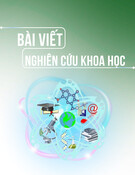

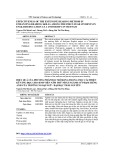
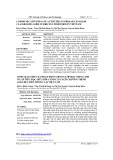

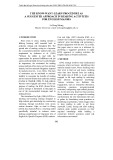


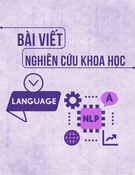
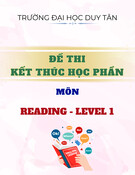
![Đề cương môn Tiếng Anh 1 [Chuẩn Nhất/Mới Nhất]](https://cdn.tailieu.vn/images/document/thumbnail/2025/20251130/cubabep141@gmail.com/135x160/51711764555685.jpg)
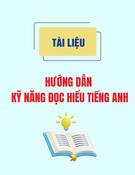

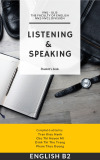
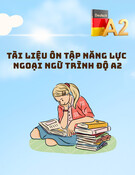
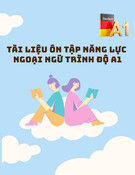
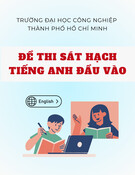
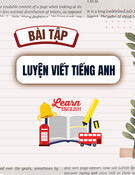
![Mẫu thư Tiếng Anh: Tài liệu [Mô tả chi tiết hơn về loại tài liệu hoặc mục đích sử dụng]](https://cdn.tailieu.vn/images/document/thumbnail/2025/20250814/vinhsannguyenphuc@gmail.com/135x160/71321755225259.jpg)
